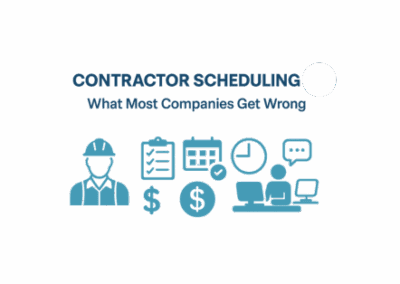Our previous blogs have discussed issues that arise in the workplace, specifically focusing around bad scheduling as well as last-minute scheduling changes. Why is employee scheduling such a burning issue in the modern workplace? What have recent studies suggested regarding the impact of scheduling on Employee wellbeing? We’ll be addressing all these questions in this blog!
Difficulty of Scheduling

One of the most challenging occupations is managing a team of shift workers. Employee scheduling is a common source of frustration for business owners. Employees need transparent scheduling to go to work and know their tasks for the week. However, if the schedule meets their unique requirements, it will impact your organization.
Employees play an essential role in a company’s success. They are the driving force that cultivates an environment conducive to improved productivity and devotion. However, there is one thing that can halt their production and harm your business: work schedules. This one factor can affect employee engagement, and employee wellbeing at work.
Costs of Poor Scheduling
A detailed shift schedule assists the firm in creating structure and operating smoothly. Creating schedules can be tricky since various factors must be considered. The expectations and desires of the workers should play a significant role in scheduling their spare time and work lives. However, that’s not always the case.
When scheduling employees, managers must consider many aspects, including labour costs, overtime expenditures, vacation time, and personal preferences. Managers might spend several hours scheduling and still end up with a schedule that only considers some employees’ needs. This poor management can result in a number of problems:
Low employee satisfaction
Schedules provide an overview of your employees’ working week. However, if their schedules conflict with their personal life, it might cause worry and dissatisfaction. Things frequently arise on the spur of the moment, which means your staff must work extra hours or work overlapping shifts.

Many people struggle to adjust to sudden changes in their schedules. It indicates that they are under pressure to divide their time, which can reduce their commitment and productivity. The lesser employees perform, the less happy they are with their employment.
Unfortunately, this annoyance can spread to the rest of your squad. It contributes to a hostile work environment and undermines morale. Before you know it, you have an issue with employee retention.
The organizational structure and culture of a company impact how satisfied employees are. According to a BMC Health Services Research article, a company’s culture, which refers to one’s aims and values, influences employee effort.
When managers and employees communicate effectively, the team’s cooperation improves. It will motivate everyone to fulfil the company’s objectives, improving employee-wellbeing.
Mental health issues.
Poor scheduling also contributes to frustrated staff, and poor employee mental health. People find it challenging to discuss mental health issues, in both their personal and professional lives. Emotions, perceptions, and thoughts are all affected by mental health concerns.
Individually, this usually means that you do less successfully in social and work-related situations. It signifies you have less energy and mental resources to complete your activity. Furthermore, it isn’t easy to keep daily life together. So how can you help positively impact employee wellbeing through scheduling?
Absenteeism

When employee scheduling isn’t handled effectively, problems with absenteeism might become more common in the workplace. This can be for two reasons.
1) If your employees are experiencing mental health issues as a result of scheduling, they may start to avoid work. Whether that’s by using their sick days or simply missing shifts, either way, it causes problems. Other employees need to work harder to cover for those who are missing. Morale drops, and your bottom line is affected.
2) Even if employees are not struggling with mental health, they may still miss shifts frequently if they feel their personal lives are not being considered in the employee schedule. Working shifts can make it difficult to tackle day-to-day tasks such as banking, going to the doctor, or being there for your children. So, employees feel the only way to go about their daily lives is to miss shifts as necessary. This can be detrimental to your business when you try to create a positive work environment.
Scheduling Focused Towards Employee Wellbeing
By now, you must have heard about the increasing movement towards a four-day workweek. About 30% of large companies in the US are looking into new work schedules. These include four-day or four-and-a-half-day workweeks, according to KPMG research.
But is that enough? According to a CNN piece, this is not the case. CNN’s report discusses how common irregular scheduling and last-minute changes are and how they can impact workers’ lives and the wellbeing of their families. The article shared:
“Unstable and unpredictable work schedules continue to be the norm for service sector workers — especially for workers of color, and for women of color in particular,” according to a report Friday by the Shift Project, a joint venture by Harvard University and the University of California, San Francisco.
This stance, alongside the growing popularity of employee wellbeing programs signal a shift in the right direction. So, how can you, as a business owner utilise employee scheduling to support employee wellbeing in your organization?
So what does this say about employee wellbeing?
Flexible Scheduling: Centralizing Employee Wellbeing

Every year, many organizations recognize that the traditional nine-to-five workday is obsolete. Working too many hours at the workplace can result in chronic stress, poor health habits, and job dissatisfaction.
On the other hand, employees with flexible work schedules enjoy better job satisfaction, lower absenteeism, and lower turnover rates. Employers can improve their employees’ general health and wellbeing by allowing them to work their own hours and work from home when necessary.
If your organization does not already provide some level of flexibility to its employees, we advise you to examine the following five employee wellbeing benefits of a flexible schedule:
Increased Happiness
Employees are happier in flexible work situations, according to research. It’s as simple as that. This makes sense because flexible schedules typically provide a better work-life balance. Many employees with flexible schedules believe their boss values their personal lives and trusts them to do tasks on their own time.
Employers benefit from happier employees since they are more productive, loyal, and have higher retention rates. This means improved mental and even physical health.
Decreased Stress
Flexible schedules help employees relieve some of the stress in their lives. Schedules that are too full might contribute to feelings of persistent tension and worry. Flexible workplaces can help alleviate some of this stress by lowering commute time and allowing employees to work on projects when it is most convenient for them. Flexible schedules also serve to alleviate stress by reducing negative spillover between home and work life – and vice versa.
Less Chance of Burnout

Most full-time American employees are overworked, and data shows that you don’t want overworked individuals running your firm! Employee burnout is readily caused by working too many hours in the office. The poor health impacts of occupational burnout are costly to the person and the organization. According to the Harvard Business Review, burned-out employees’ psychological and physical difficulties cost the United States between $125 billion and $190 billion in healthcare costs each year.
Financial Perks
Managers should address the financial advantages of flexible work arrangements. Employees who can work from home or work flexible hours will save money on petrol because they will not have to commute as frequently. Employees with children will also benefit financially, as they will save money on childcare costs if they can look after their children or pick them up from school. This benefit is essential for firms that prioritize financial wellness in their employee wellbeing programme.
Ability To Practice Healthy Habits
Employees with flexible work schedules have more time to adopt healthy behaviours. Telecommuting and flex hours enable employees to devote time to regular exercise, self-care, and the preparation of nutritious meals. For instance, the University of Minnesota researched whether flexible scheduling improved employees’ overall wellbeing and healthy behaviour. Employees with flexible schedules were found to obtain more sleep, care for any health concerns, and feel more enthusiastic during the workday.
Employee Wellbeing for the Win
Work schedules, like pay, are essential to job quality, yet they are mainly deregulated in the US labour market. The increasing importance of fair workweek legislations and flexible scheduling on employees feeling more empowered is undoubtedly something to notice. Giving employees the ability to predict and decide their schedules can significantly affect their wellbeing and provide downstream benefits such as “improving workers’ sleep, economic security, and overall happiness.”
One of the most significant aspects of flexible work environments is that companies may profit from them in the same way that employees do. Healthier and happier employees contribute to a more productive and profitable firm, making it the ultimate win-win situation. If you’d like to learn about how Celayix can help you utilise employee scheduling to improve employee wellbeing, schedule a free live demo here.




